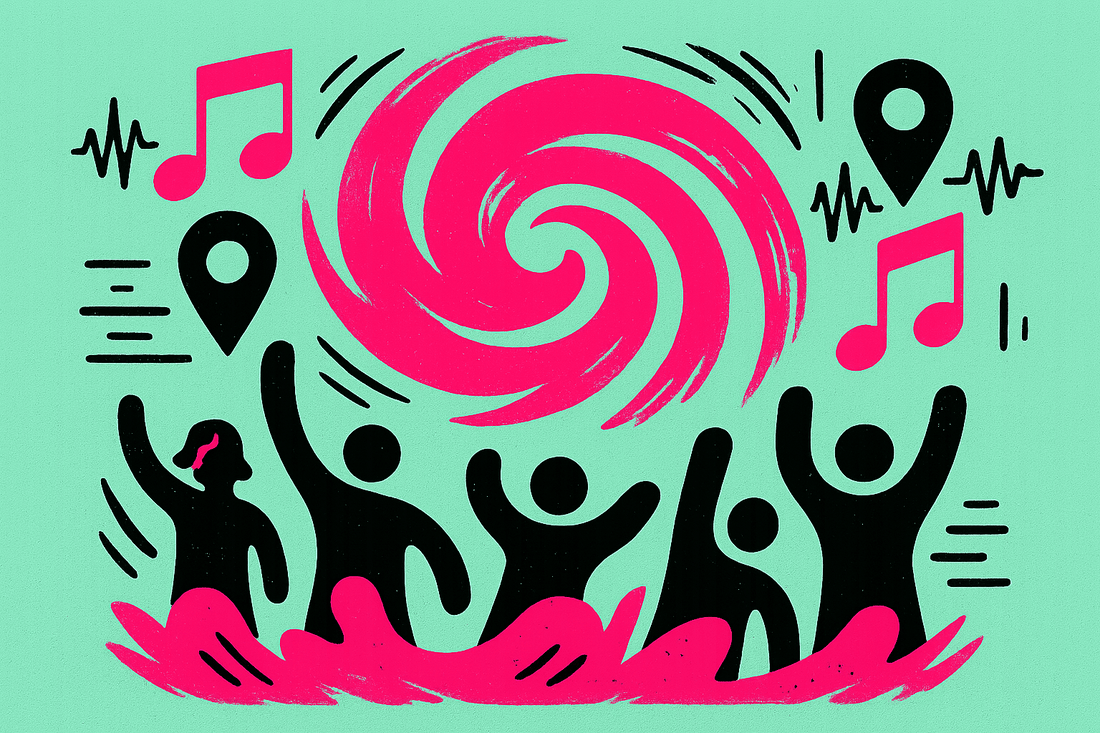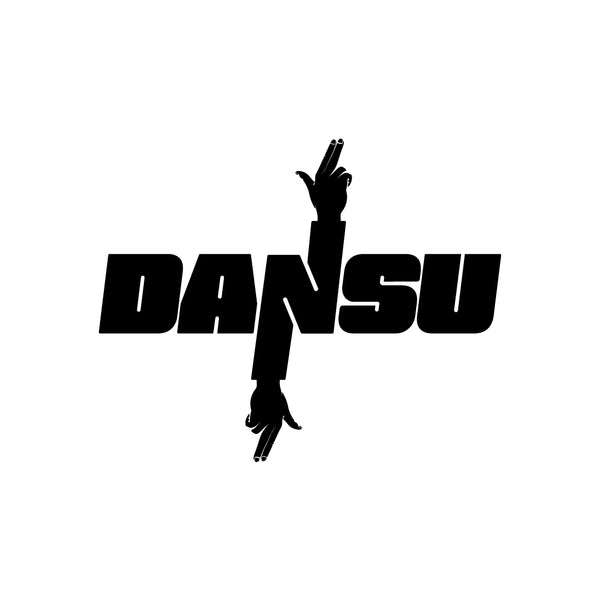
How Festivals Boost Local Economies
Festivals are more than just entertainment - they’re a major economic driver for local communities. They attract visitors who spend on accommodation, food, transport, and retail, creating a surge in revenue for businesses. Additionally, festivals generate temporary jobs, support local artists and vendors, and increase tourism long after the event ends. However, challenges like infrastructure strain, waste management, and weather risks must be addressed to maximise their impact.
Key takeaways:
- Visitor Spending: Hotels, restaurants, and shops thrive during festivals.
- Job Creation: Temporary roles include security, stewards, and hospitality staff.
- Long-Term Benefits: Festivals encourage repeat tourism and promote local businesses.
- Challenges: Traffic, waste, and unpredictable weather can disrupt communities.
Do Electronic Music Festivals Boost Local Economies? - Electronic Mix Masters
Direct Economic Benefits of Festivals
Festivals bring an immediate and noticeable boost to local economies, with thousands of visitors driving spending across various sectors.
How Festival Visitors Spend Money Locally
Festival-goers contribute significantly to local spending, especially on accommodation, food, transport, and retail. Hotels, bed and breakfasts, campsites, and holiday rentals often see bookings well in advance, reflecting the high demand during these events.
Visitors also flock to local restaurants and pubs, while nearby shops benefit from sales of essentials and festival-specific items. From waterproof clothing to camping gear, attendees often purchase practical goods to enhance their experience. For example, Dansu, known for its premium quick-dry rave towels, caters to festival needs while offering organisers a chance to generate additional revenue. This spending ripple effect energises local businesses, creating a surge in activity for hotels, eateries, and shops.
Increased Business for Hotels, Restaurants, and Shops
The hospitality sector thrives during festival periods. Hotels near event sites often raise their rates due to high demand, while restaurants and pubs adjust their operations to handle the influx of visitors. Pubs and bars, in particular, enjoy increased footfall, often becoming lively spots for post-festival gatherings. Retailers also benefit, as festival-goers shop for everything from last-minute essentials to festival-themed merchandise.
Job Creation During Festival Periods
Festivals don’t just boost spending - they also create jobs across multiple industries. Temporary roles like security staff, stewards, bar workers, cleaners, and merchandise sellers provide valuable opportunities for local residents. Hospitality businesses often hire additional staff, including kitchen workers, waiters, housekeepers, and receptionists, to manage the surge in visitors.
Transport services also see a spike in demand, requiring more taxi and coach drivers as well as parking attendants. Retailers frequently bring on extra part-time staff to handle the busy period. Specialist festival roles, such as campsite managers and shuttle operators, further expand employment opportunities. Even merchandise providers like Dansu, with their rave towels designed for festivals, contribute to job creation while offering practical solutions that enhance the overall festival experience.
These economic benefits not only provide a short-term boost but also create a foundation for continued growth, strengthening local communities long after the festival ends.
Long-Term Economic Effects Beyond the Festival
Festivals don’t just provide a short-term boost - they can also pave the way for lasting economic benefits. Beyond the festival weekend, they help build resilience and sustained growth for local communities.
Attracting Tourists Who Return Later
Festivals often serve as a gateway for visitors to discover new destinations. Many attendees get their first glimpse of charming villages, breathtaking landscapes, or vibrant city districts during these events, leaving them eager to return.
This effect is especially noticeable in rural areas. Visitors travelling to remote locations for festivals often take the opportunity to explore the surrounding countryside, visit local landmarks, and soak in the region’s character. These experiences frequently inspire return trips for holidays, weekend getaways, or even quick day trips throughout the year.
Urban festivals have a similar impact, drawing attention to neighbourhoods that might otherwise go unnoticed. Festival-goers often extend their stays to visit museums, galleries, historic sites, or other attractions, and many return later with friends or family to revisit favourite spots.
Social media also plays a role here. When attendees share their experiences online, they spark interest in the area, encouraging others to visit and further boosting local tourism.
Increased Visibility for Local Businesses
Festivals are a golden opportunity for local businesses to connect with new customers. Small shops, cafés, restaurants, and service providers often see a surge in foot traffic during these events, introducing them to thousands of potential patrons who might not have discovered them otherwise.
Beyond the immediate sales, these interactions can lead to long-term benefits. Entrepreneurs often use festivals to network, building relationships that can result in future collaborations, partnerships, or referrals. Many businesses also see an uptick in online engagement and word-of-mouth recommendations, which continues to drive customer interest long after the festival ends.
Platforms for Local Artists and Food Vendors
For local creative talent and food entrepreneurs, festivals can be game-changing. These events provide a stage to showcase their work to large, engaged audiences actively seeking unique products and experiences.
Artists and craftspeople, for example, can display their creations - whether it’s handmade jewellery, artwork, or bespoke crafts - to thousands of potential buyers in just a few days. Many use festivals as an opportunity to test new ideas, gather feedback, and grow a loyal customer base that supports them year-round.
Food vendors also benefit immensely. Producers of speciality foods, craft drinks, or unique culinary offerings can introduce their products to diverse audiences. A successful festival appearance often leads to new opportunities, such as wholesale deals, partnerships with restaurants, or expanded retail distribution.
Even the custom merchandise sector sees benefits. Festival organisers increasingly seek distinctive branded items that enhance the attendee experience while promoting the event. For instance, companies like Dansu supply practical items like quick-dry microfibre towels, designed with festivals in mind. These products not only serve attendees but also keep the event’s branding alive long after the festival ends.
All these factors combine to create a ripple effect. As local businesses thrive, artists build their careers, and tourism grows, the economic benefits multiply. This creates a cycle of growth that strengthens communities and supports their prosperity for years to come.
Common Problems with Hosting Festivals
Festivals can be a great boost for the local economy, but they come with their own set of challenges that organisers and local authorities need to tackle.
Pressure on Local Infrastructure
Big events often push local infrastructure to its limits. Roads can get clogged with heavy traffic, and residents might face parking headaches during the event. Public transport systems can become overcrowded, and the increased demand for utilities like water and electricity can disrupt the daily lives of the community. Emergency services also face extra pressure as they work to ensure everyone’s safety. On top of all this, financial and environmental concerns add another layer of complexity to planning these events.
Financial Risks and Weather Dependencies
The financial side of festivals is a gamble. A sudden downpour or unexpected bad weather can keep people away, leading to lower ticket sales and reduced spending at local businesses. This can create cash flow problems for organisers and dampen the economic boost that the community was counting on.
Waste and Resource Management Issues
Festivals also bring logistical challenges, especially when it comes to waste and resources. The sheer volume of rubbish produced can overwhelm local waste management systems. Temporary facilities, along with the extra demand for water and power, add to the strain. Careful planning is essential to handle waste properly, maintain recycling efforts, and ensure clean-up operations meet community expectations. Without addressing these issues, the economic benefits of festivals can fall short of their potential.
sbb-itb-ed87f5d
How to Maximise Festival Economic Benefits
Even with the challenges festivals face, organisers can still amplify their economic impact by adopting proven strategies. Building on ideas like boosting local spending and creating jobs, these methods provide practical ways to tackle common festival hurdles.
Building Partnerships with Local Businesses
Collaborating with local businesses is a powerful way to keep festival spending within the community. Instead of turning to external suppliers, organisers can form partnerships that directly benefit the local economy.
For example, setting up preferred vendor programmes can make a big difference. These might include exclusive accommodation deals or curated dining promotions that encourage attendees to spend locally. Organisers can also arrange shuttle services from nearby hotels or highlight local restaurants in festival marketing efforts.
Food and drink collaborations are especially effective. By reserving spaces for local food vendors and breweries, festivals not only give attendees a taste of the area’s culinary offerings but also ensure revenue stays in the community.
Local suppliers can also handle essential services like security, cleaning, and transport. While these might come at a slightly higher cost compared to national contractors, the benefits are clear: the money stays local, and the services are often better, thanks to providers who know the area well.
These partnerships lay the groundwork for broader improvements in infrastructure and event planning.
Improving Infrastructure and Event Planning
Investing in infrastructure doesn’t just enhance the festival experience - it leaves a lasting legacy for the community. Upgraded transport links, improved public facilities, and better utilities serve residents long after the festival ends.
Temporary upgrades often become permanent. Adding public toilets, improving lighting in car parks, or creating safer pedestrian pathways benefits everyone, not just festival-goers. Many festivals work closely with local councils to ensure these enhancements remain in place after the event.
Effective traffic management is another key area. Dedicated festival parking areas, clear pedestrian routes, and increased public transport services during peak times can ease the strain on local residents while improving the overall experience for attendees.
Smart scheduling also plays a role in maximising economic benefits. Festivals spanning multiple days or weekends encourage visitors to stay longer, increasing spending on accommodation and dining. Staggered entry times and extended hours help spread the economic activity across more businesses and reduce strain on infrastructure.
Alongside these logistical improvements, custom merchandise offers another way to boost festival revenue.
Custom Merchandise for Additional Revenue
Custom merchandise doesn’t just bring in extra income - it also keeps the festival’s branding alive long after the event.
Take Dansu’s custom festival towels, for example. These quick-dry microfibre towels are practical for festival-goers, serving as everything from a clean seating surface to a handy way to wipe off sweat. Lightweight and ultra-absorbent, these towels are easy to pack, dry quickly, and even feature a built-in metal grommet for convenient hanging at campsites. Plus, they’re odour-resistant and machine-washable, making them a long-lasting item attendees will actually use.
The success of festival merchandise hinges on offering items that people find genuinely useful. Products like Dansu’s towels, designed with bold, high-contrast patterns inspired by dance culture, not only reflect the festival’s unique vibe but also create keepsakes that attendees want to hold onto. This ongoing use turns merchandise into a form of free advertising, potentially drawing new attendees to future events.
Merchandise sales also provide a direct financial boost to the festival. Unlike ticket sales, which often come with platform fees and other costs, merchandise typically offers higher profit margins. The revenue can then be reinvested into artist fees, infrastructure projects, or community initiatives, ensuring the festival’s benefits extend even further.
Real Examples of Festival Economic Impact
Real-world examples show how Dansu's custom merchandise not only boosts festival revenue but also contributes to local economic growth.
Dansu's Support for Festival Organisers

Dansu has established itself as a trusted partner for UK festival organisers, enhancing both attendee satisfaction and event revenue. One standout product is their quick-dry microfibre towels, which are perfect for multi-day festivals. These towels are designed to endure the challenges of festival life, offering a practical and durable accessory for attendees.
Crafted with ultra-absorbent material and featuring a built-in metal grommet for easy hanging, these towels are tailored to the needs of festival-goers. Dansu also offers rapid production and flexible order sizes, allowing organisers to experiment with custom designs without committing to large financial outlays. This flexibility ensures that organisers can meet festival-specific demands while creating new revenue opportunities.
The rave-inspired towel designs reflect the vibrant energy of festival culture, turning each product into a cherished keepsake that continues to promote the festival brand long after the event. By aligning their merchandise with the spirit of festivals, Dansu not only enhances the attendee experience but also contributes to the local economy. These tailored products create additional income streams for organisers and support economic activity in surrounding communities. Through this integration of utility and cultural relevance, Dansu demonstrates how thoughtful merchandise can drive sustained economic benefits.
Conclusion: Festivals as Economic Drivers
Main Points Summary
Festivals play a key role in boosting local economies by bringing in revenue, creating jobs, and giving small businesses a much-needed platform. Spending on essentials like accommodation, food, transport, and merchandise directly benefits local businesses. Hotels, restaurants, and shops, in particular, see a surge in activity thanks to increased visitor numbers.
But the impact doesn’t stop when the festival ends. Many attendees return later, drawn back by attractions and businesses they discovered during their visit. This repeat tourism keeps cash flowing into the local economy throughout the year. For small businesses, festivals often open the door to a loyal customer base that sticks around long after the event has wrapped up.
Of course, capitalising on these benefits requires thoughtful planning and collaboration. Challenges such as infrastructure strain and waste management need addressing. Festivals that work hand-in-hand with local councils, businesses, and service providers tend to have the greatest positive impact. By building strong partnerships, they can maximise the benefits while keeping disruptions to a minimum.
Even seemingly small touches, like offering custom merchandise - think Dansu's quick-dry rave towels - can elevate the attendee experience while boosting organiser revenue. With these strategies in place, the economic potential of festivals continues to grow.
The Future of Festival Economics
As festivals evolve, their focus is shifting towards sustainable growth and community benefits that last all year. Organisers are increasingly adopting models that prioritise long-term economic value over short-term gains. Success will hinge on forging deeper local partnerships, improving infrastructure, and offering merchandise that genuinely reflects the festival’s identity rather than generic souvenirs.
Technology is playing a big part in this transformation. With tools like data analytics and cashless payment systems, organisers can better understand spending habits and economic impact. This data helps them fine-tune their strategies to maximise local benefits and demonstrate their value to local authorities, securing ongoing support.
Looking ahead, festivals that genuinely engage with their communities and commit to long-term economic sustainability are more likely to thrive. By focusing on meaningful economic relationships, festivals can become vital parts of their local economies - supporting businesses, creating jobs, and nurturing cultural growth year-round.
FAQs
How can local communities manage the challenges large festivals bring to infrastructure?
Local communities can tackle the infrastructure demands of large festivals through thoughtful planning and collaboration. This involves increasing staffing levels, improving facilities, and implementing strong safety protocols. Managing transport systems, coordinating vendor activities, and maintaining effective crowd control are also crucial to minimising the pressure on local services.
Encouraging green travel options and adopting environmentally friendly practices can help lessen the ecological footprint while boosting the local economy. By managing these challenges well, communities can reap the rewards festivals offer, including a surge in tourism, job opportunities, and income for local businesses.
How can festival organisers create lasting economic benefits for local communities?
Festival organisers can create lasting economic advantages by engaging and supporting local businesses in meaningful ways. This could involve collaborating with local vendors, featuring regional artisans, and choosing local suppliers for event essentials. Such efforts not only boost income during the festival but also strengthen community connections and inspire visitors to return, enhancing tourism over time.
Moreover, teaming up with local councils and businesses to market the area as a year-round destination can make a big difference. By spotlighting the region's distinctive culture, products, and experiences, organisers can help drive steady economic growth long after the festival wraps up.
How do festivals support local economies while addressing their environmental impact?
Festivals across the UK are stepping up their efforts to balance their economic benefits with a sense of responsibility towards the environment. These events not only bring in substantial revenue for local businesses, create employment opportunities, and draw in tourists, but they are also increasingly focused on cutting down their ecological impact.
Many organisers are taking practical steps such as eliminating single-use plastics, enhancing recycling programmes, and encouraging attendees to use public transport or car-sharing to reduce emissions. A standout example is Glastonbury, which has committed to running entirely on renewable energy and actively working to lower its carbon footprint. By embracing these measures, festivals can continue to energise local economies while safeguarding the planet for the generations to come.
